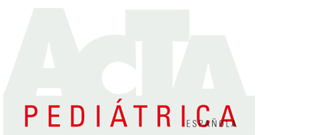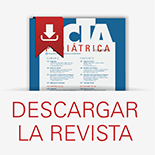Resumen
Varias son las normas y leyes que tratan de establecer un reglamento básico que regule la relación entre el médico y el paciente y los derechos y deberes que ambos tienen durante dicho proceso. Por ello, muchos son los organismos que han realizado declaraciones o normas jurídicas relativas a este tema (UNESCO, OMS, Unión Europea, etc.). Todos estos preceptos se hallan resumidos en la Ley 41/2002, promulgada por las Cortes españolas. De la misma forma, dentro de nuestro país, varias comunidades autónomas han regulado mediante una ley estos aspectos, haciendo especial hincapié en la información clínica y el consentimiento informado (Cataluña, Galicia, Navarra, Castilla y León, etc.).
Mención especial requiere la relación médico-paciente en los casos pediátricos, ya que ésta es diferente y, además, generalmente suelen intervenir en ella más individuos (padres o tutores en la mayoría de los casos).
La Ley 41/2002 establece ciertas características especiales en la relación médico-paciente pediátrico y marca los límites legales en la relación entre el sanitario, el niño y sus familiares o tutores.
Pero el debate actualmente va más allá, ya que entra en juego el concepto de «menor maduro», según el cual el límite para establecer la mayoría de edad en cuanto a decisiones sobre su propia persona queda más difuminado. De esta forma, se regula la posibilidad de que las decisiones sobre la salud del niño pueda tomarlas él mismo, o al menos sugerir lo que él considera mejor para sí mismo, en el momento en que el profesional sanitario lo considere «maduro».
Abstract
There are several standards and laws that attempt to establish basic regulations to control the relationship between the doctor and the patient and the rights and obligations of each during the process. Therefore, many organizations (such as the United Nations Educational, Scientific and Cultural Organization [UNESCO], the World Health Organization [WHO], the European Union. etc) have issued statements or legal standards regarding this issue. All these precepts have been summarized in law 41/2002, promulgated by the Spanish Parliament. Likewise, a number of autonomous regions in our country (Catalonia, Galicia, Navarre, Castile-León, etc.) now regulate these aspects by law, with special emphasis on clinical information and informed consent.
The doctor-patient relationship in pediatric cases is different, and other individuals are involved in it (mainly parents or legal tutors).
Law 41/2002 establishes special characteristics for this doctor-pediatric patient relationship and specifies the legal limits relative to the relationship among the health worker, the child and his or her family or tutors. However the debate nowadays goes beyond this. The new concept of the "mature minor" comes into play. In this concept, the limit for establishing the age of majority regarding decisions concerning his or her own self becomes blurrier. Thus, the decisions to be made over the health of the child are standardized: when the physician considers the patient "mature" enough, the child himself will be allowed to make decisions, or at least suggest what he considers better for himself/herself.














